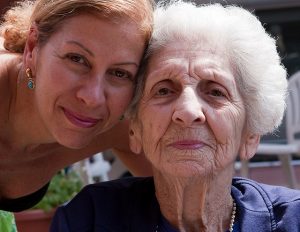4 Home Improvements Caregivers Should Make
Paige A. Mitchell
If you’re caring for a family member at home, you’ll want to ensure your house is a safe, healthy environment for everyone involved. You’ll likely have some adjustments to make in order to make your home more comfortable for an ill or impaired loved one. Consider the four home improvements below.
1. Declutter and re-decorate
Keep floors clear of toys and shoes. Strategically rearrange the furniture, so that your loved one is able to remain stimulated and engaged while they sit. For example, they may enjoy some natural sunlight and the view of nature from a comfortable chair near a window. Personal touches and familiar objects can make Alzheimer’s patients more comfortable.
2. Enhanced access
It’s important to review each room in the house to determine how accessible it is to someone who is ill or impaired. The American Association of Retired Persons’ checklist includes zero-threshold and wide entrances for wheelchairs and walkers, low light switches and door knobs that are reachable to someone in a wheelchair, and non-slip flooring and grab bars in at least one bathroom.
3. Maintain your home
Whether you’re caring for someone who is ill or not, it’s important to conduct regular home maintenance to ensure it’s a truly healthy environment. For example, replacing batteries in smoke detectors is especially important if your loved one is forgetful and susceptible to forgetting that something is on the stove. Take full advantage of your home repair insurance to save time, energy, and money on repairs.
4. Ask for help
Fifty percent of caregivers report feeling depressed. If you’re suffering from fatigue, isolation, irritable, and/or ill, it’s important to take a step back to take care of yourself. Don’t forget to ask for help when you need it. Seek an expert opinion for objective advice on whether you should consider placing your loved one in assisted care.




